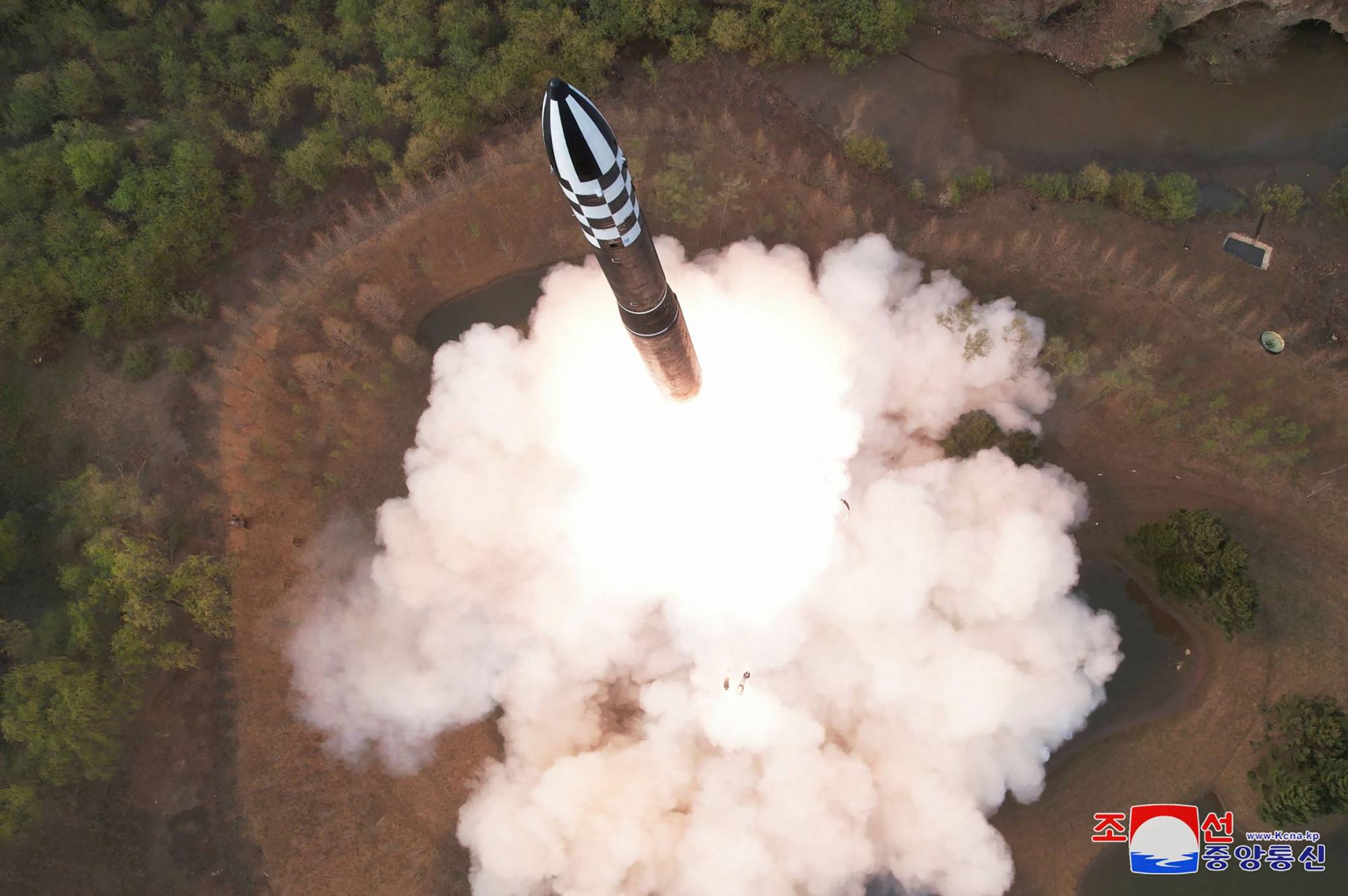
Indonesia’s Megawati talks up North Korea as model for nuclear programme
- The former president says it’s ‘never too late’ for Indonesia to seize the benefits of atomic energy and has ordered work to begin on designing a commercial nuclear reactor
- Indonesia has long sought to stay away from building nuclear power plants, but still maintains diplomatic and trade ties with North Korea
Former president Megawati Sukarnoputri has urged Indonesia to take a leaf out of North Korea’s nuclear programme playbook, saying it was “never too late” for the country to seize the benefits of atomic energy.
Megawati, head of the Democratic Party of Struggle (PDI-P), which includes President Joko Widodo, also asked the National Research and Innovation Agency to begin work on designing a commercial nuclear reactor.
She said Indonesia could still catch up with nuclear-armed nations like North Korea which has made significant progress in mastering the technology despite its economy being crippled by United Nations sanctions.

“If we can develop the technology, it’s never too late. We can catch up with countries that have nuclear programmes,” said Megawati, the daughter of Indonesia’s first president Sukarno.
She added that financial limitations should not stand in the way of Indonesia becoming a nuclear state, The Jakarta Post reported.
“How can a country like North Korea develop its nuclear programme? It’s a problem of human resources, I believe,” Megawati said.
North Korea has been under several rounds of UN sanctions imposed over its repeated nuclear and missile tests since 2006.
In recent months, Pyongyang launched dozens of missiles, including ballistic weapons that flew over Japan and showed a potential to reach the US mainland.
The US, South Korea and Japan have accused the reclusive nation of turning to cyberattacks and cryptocurrency thefts to fund its weapons programmes. The illicit activities helped North Korea earn an estimated US$1.7 billion in 2022.
Indonesia still maintains diplomatic and trade ties with North Korea, but commerce has slowed to a trickle as Jakarta adheres to the UN restrictions.
Indonesia has long sought to stay away from building nuclear power plants since the Yudhoyono administration in 2014 stated they are a “last resort option” to meet the country’s energy needs and instead promoted the use of coal, natural gas and renewables.
According to the International Energy Agency, Indonesia was the world’s ninth-largest energy sector emitter in 2021. About 60 per cent of the country’s power comes from coal despite it last year setting an ambitious target for reducing carbon emission by 31.89 per cent on its own or 43.2 per cent with international support, by 2030.
Renewable energy currently contributes to 12 per cent of national power capacity.
Can US be serious on climate, while coughing up for Indonesia oil refinery?
Jakarta has also signalled its intention to ratify the UN-backed Treaty on the Prohibition of Nuclear Weapons as it seeks to pursue peaceful use of atomic energy to meet the country’s net zero targets by 2060 or sooner.
Indonesia presently runs three nuclear research reactors but has seen periodic protests against nuclear energy in the past.
US power firm ThorCon is lobbying the government to build Indonesia’s first nuclear power plant on an uninhabited island in Bangka Belitung province by 2030.
The company said the risk of natural disasters, including earthquakes and forest fires, was minimal at the US$1.1 billion project site. It added the reactors would be made in South Korea and the facility was expected to run commercially in 2032.

